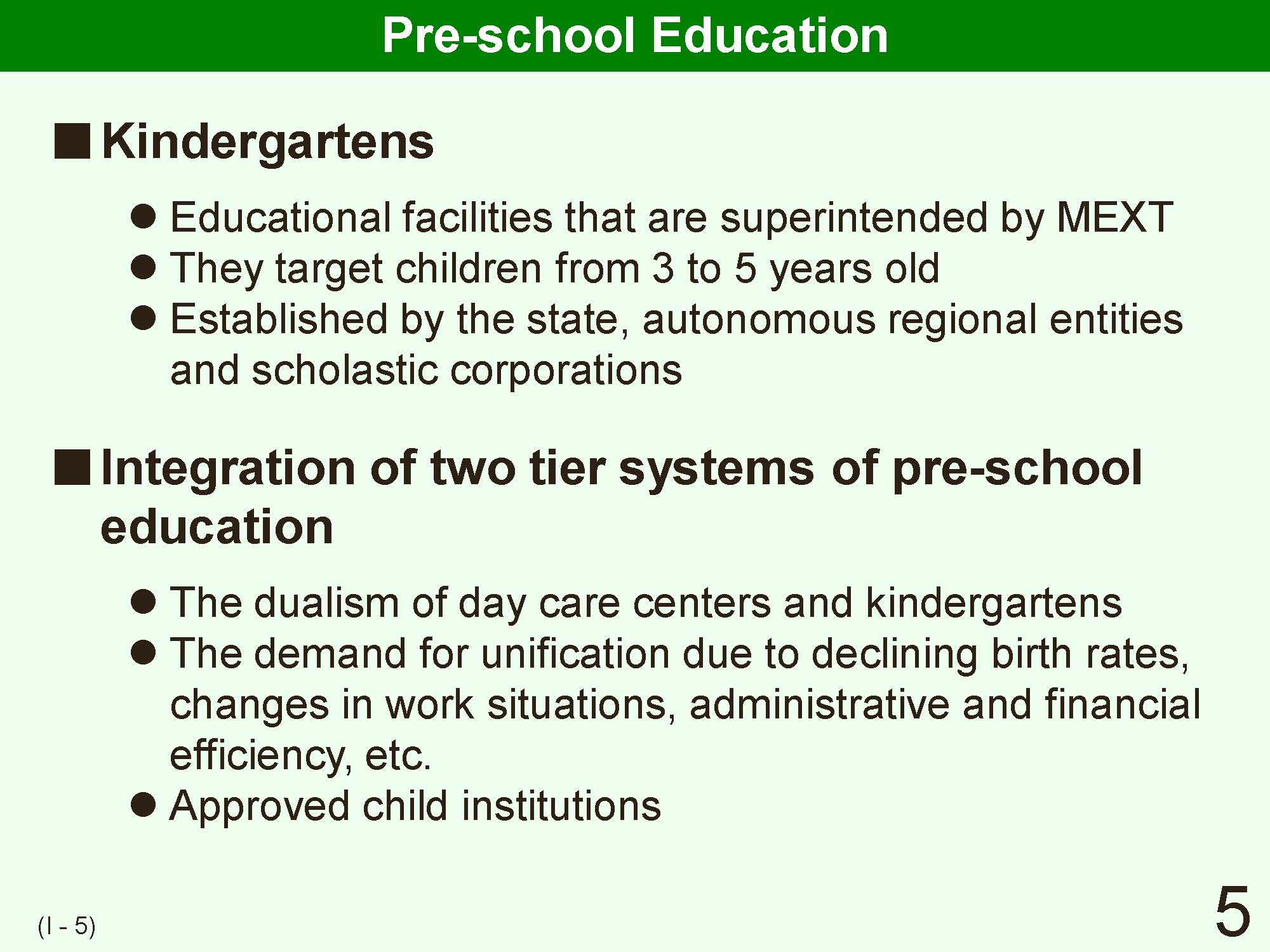| 5 | gI Outline of Japanese School Systemh | Previous | Next | JAPANESE |
|---|---|---|---|---|
 |
||||
| Kindergartens are educational facilities that are superintended by the Ministry of Education, Culture, Science, Sports and Technology (MEXT) for children from 3 to 5 years old, and that give young children appropriate surroundings and encourage the development of their mind and bodies. While in theory school can only be established by the state, autonomous regional entities and scholastic corporations, the present time kindergartens can also be established by religious corporations and individuals.
Day care centers are welfare facilities for infants superintended by the Ministry of Health, Labor and Welfare. In Japanfs present educational system, day care centers and kindergartens comprise a dualized structure of institutions for infants in terms of age, time for service, content of care, teachersf qualifications and precincts. Given the uneven distribution of day care centers and kindergartens, ongoing changes in mothersf work situations, and the difficulty of achieving administrative and financial efficiency of facility maintenance due to the decline in birth rates, efforts to integrate and unify the two tier system of preschool education (day care centers and kindergartens) provide a challenge. Up to the present, attempts to integrate the Course of Study (kindergarten) with the Guide to Child Care (day care centers) and to construct both facilities on the same premise are permitted in order to unify their respective administrations that represent a special area for structural reform. The approved child institution system started in October, 2006. Under this system, kindergartens and day care centers with the following functions can be authorized by prefectural governors (prefectural boards of education in certain situations) as approved child institutions. This makes it possible to provide both children who lack childcare and children who do not lack childcare with education and day care. Implementation of child rearing support (counseling for child rearing and providing of places for parent-child gathering) is hoped for. |
||||
Please send your comments and concerns here
kamada@criced.tsukuba.ac.jp
Center for Research on International Cooperation in Educational Development(CRICED) University of Tsukuba
1-1-1, Tennodai, Tsukuba-shi, IBARAKI
305-857, JAPAN